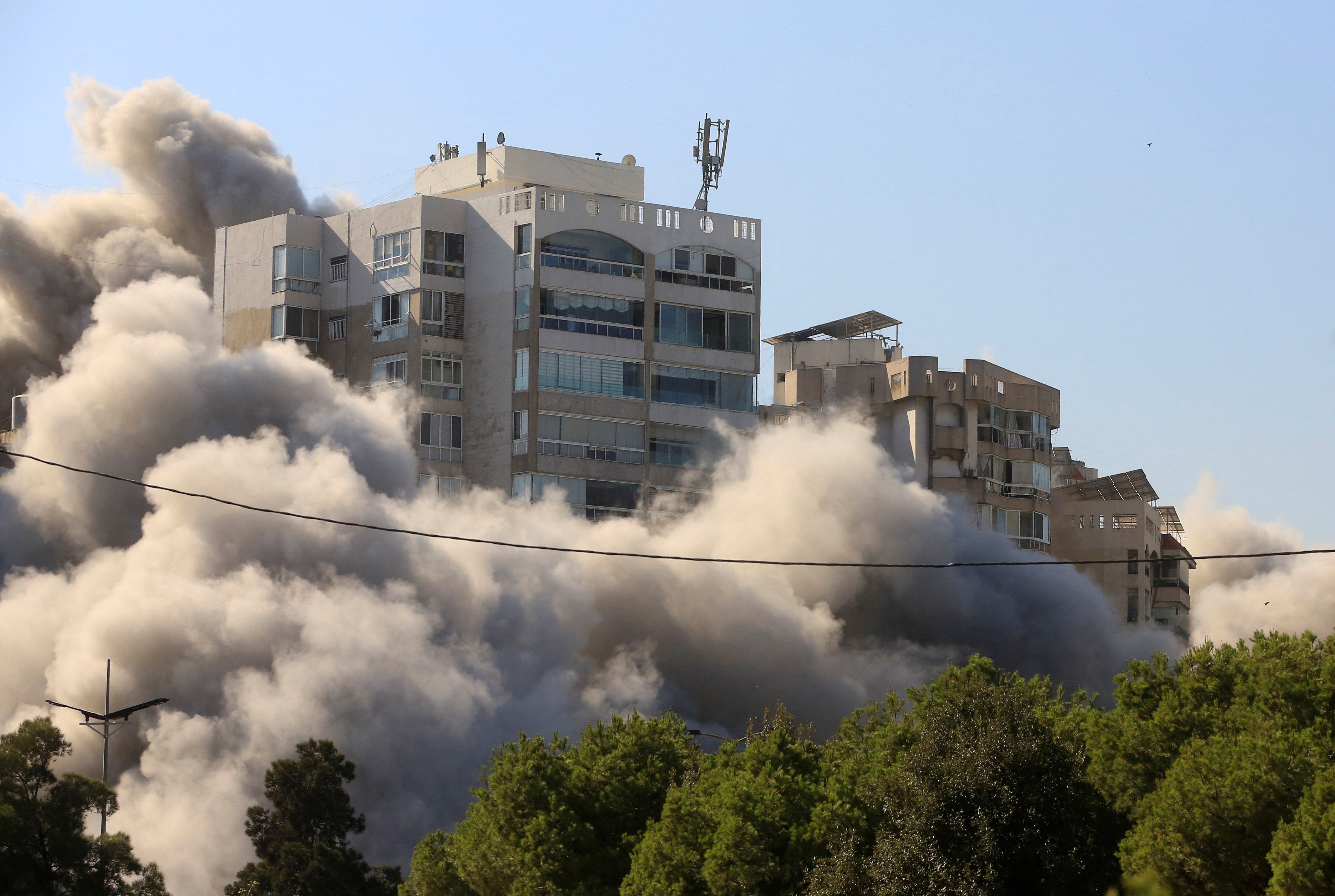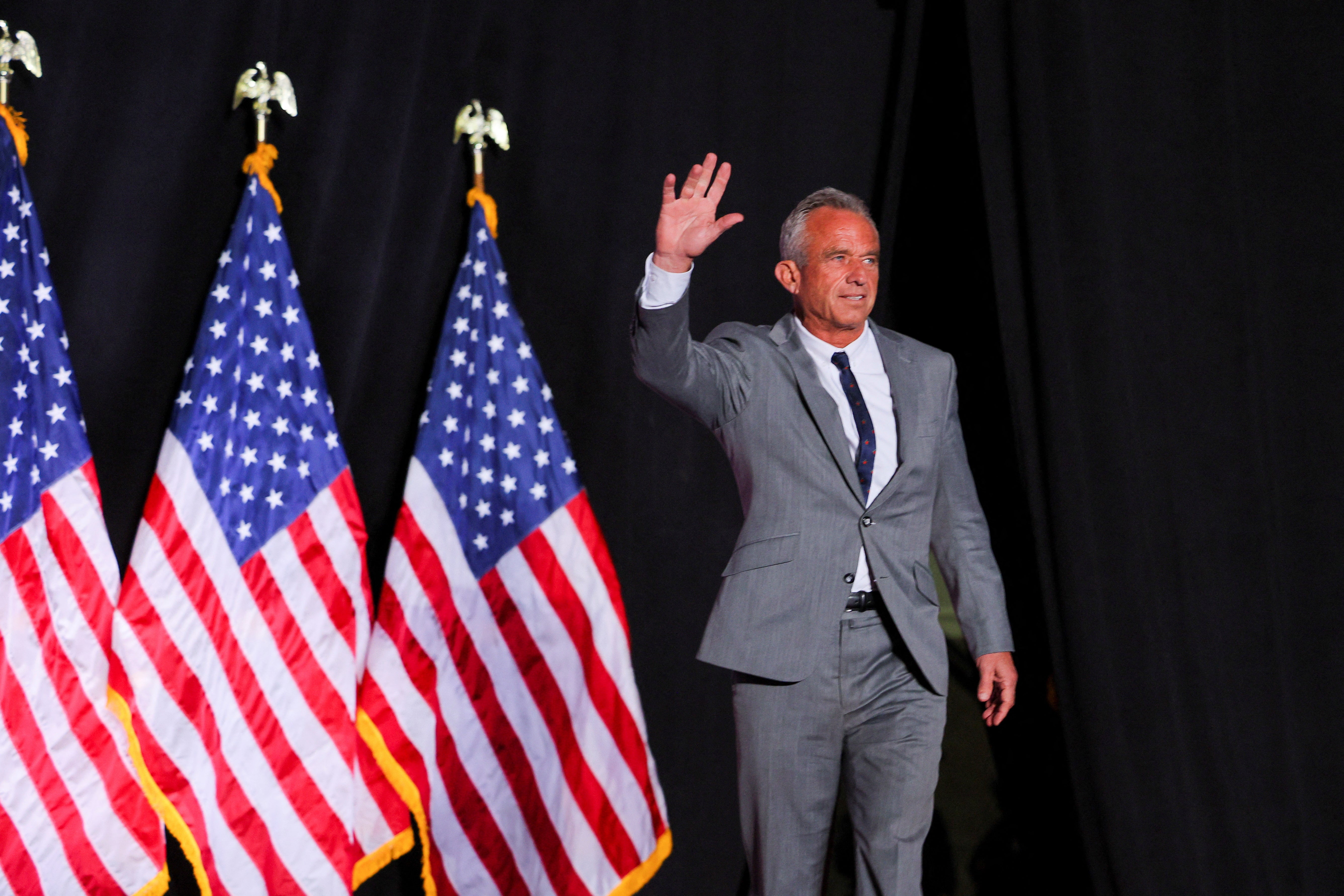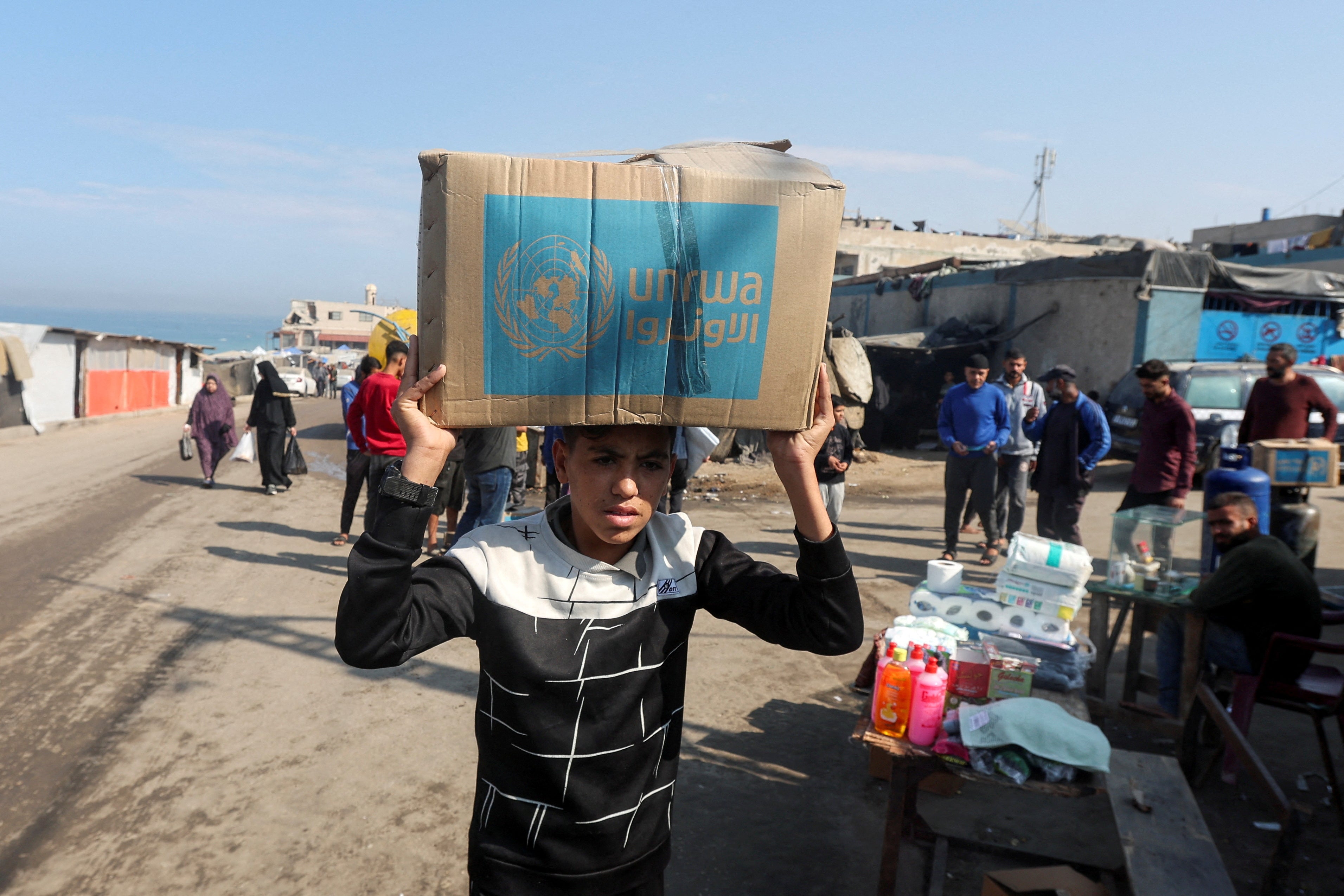
Iran backs Lebanon in ceasefire talks, seeks end to “problems”
PHOTO CAPTION: Smoke rises after an Israeli strike on a building in Tayouneh neighborhood, near a central park, amid the ongoing hostilities between Hezbollah and Israeli forces, in Beirut, Lebanon, November 15, 2024. REUTERS/Mohammed Yassin
By Maya Gebeily and Riham Alkousaa
BEIRUT (Reuters) -Iran backs any decision taken by Lebanon in talks to secure a ceasefire with Israel, a senior Iranian official said on Friday, signalling Tehran wants to see an end to a conflict that has dealt heavy blows to its Lebanese ally Hezbollah.
Israel launched airstrikes in the Hezbollah-controlled southern suburbs of Beirut, flattening buildings for a fourth consecutive day. Israel has stepped up its bombardment of the area this week, an escalation that has coincided with signs of movement in U.S.-led diplomacy towards a ceasefire.
Two senior Lebanese political sources told Reuters that the U.S. ambassador to Lebanon had presented a draft ceasefire proposal to Lebanon's parliament speaker Nabih Berri the previous day. Berri is endorsed by Hezbollah to negotiate and met the senior Iranian official Ali Larijani on Friday.
Asked at a news conference whether he had come to Beirut to undermine the U.S. truce plan, Larijani said: "We are not looking to sabotage anything. We are after a solution to the problems."
"We support in all circumstances the Lebanese government. Those who are disrupting are Netanyahu and his people," Larijani added, referring to Israeli Prime Minister Benjamin Netanyahu.
Hezbollah was founded by Iran's Revolutionary Guards in 1982, and has been armed and financed by Tehran.
A senior diplomat, speaking on condition of anonymity, assessed that more time was needed to get a ceasefire done but was hopeful it could be achieved.
The outgoing U.S. administration appears keen to secure a ceasefire in Lebanon, even as efforts to end Israel's related war in the Gaza Strip appear totally adrift.
World powers say a Lebanon ceasefire must be based on U.N. Security Council Resolution 1701 which ended a previous 2006 war between Hezbollah and Israel. Its terms require Hezbollah to move weapons and fighters north of the Litani river, which runs some 20 km (30 miles) north of the border.
Israel demands the freedom to act should Hezbollah violate any agreement, which Lebanon has rejected.
In a meeting with Larijani, Lebanon's caretaker Prime Minister Najib Mikati urged support for Lebanon's position on implementing 1701 and called this a priority, along with halting the "Israeli aggression", a statement from his office said.
Larijani stressed "that Iran supports any decision taken by the government, especially resolution 1701", the statement said.
Israel launched its ground and air offensive against Hezbollah in late September after almost a year of cross-border hostilities in parallel with the Gaza war. It says it aims to secure the return home of tens of thousands of Israelis, forced to evacuate from northern Israel under Hezbollah fire.
Israel's campaign has forced more than 1 million Lebanese to flee their homes, igniting a humanitarian crisis.
FLATTENED BUILDINGS
It has dealt Hezbollah serious blows, killing its leader Sayyed Hassan Nasrallah and other commanders. Hezbollah has kept up rocket attacks into Israel and its fighters have been battling Israeli troops in the south.
On Friday, Israeli airstrikes flattened five more buildings in Beirut's southern suburbs known as Dahiyeh. One of them was located near one of Beirut's busiest traffic junctions, Tayouneh, in an area where Dahiyeh meets other parts of Beirut.
The sound of an incoming missile could be heard in footage showing the airstrike near Tayouneh. The targeted building turned into a cloud of rubble and debris which billowed into the adjacent Horsh Beirut, the city's main park.
The Israeli military said its fighter jets attacked munitions warehouses, a headquarters and other Hezbollah infrastructure. Ahead of the latest airstrikes, the Israeli military issued a warning on social media identifying buildings.
The European Union strongly condemned the killing of 12 paramedics in an Israeli strike near Baalbek in the Bekaa Valley on Thursday, EU foreign policy chief Josep Borrell said.
"Attacks on healthcare workers and facilities are a grave violation of international humanitarian law," he wrote on X.
On Thursday, Eli Cohen, Israel's energy minister and a member of its security cabinet, told Reuters prospects for a ceasefire were the most promising since the conflict began.
The Washington Post reported that Netanyahu was rushing to advance a Lebanon ceasefire with the aim of delivering an early foreign policy win to his ally U.S. President-elect Donald Trump.
According to Lebanon's health ministry, Israeli attacks have killed at least 3,386 people through Wednesday since Oct. 7, 2023, the vast majority of them since late September. It does not distinguish between civilian casualties and fighters.
Hezbollah attacks have killed about 100 civilians and soldiers in northern Israel, the Israeli-occupied Golan Heights and southern Lebanon over the last year, according to Israel.
(Reporting by Maya Gebeily, Timour Azhari, Riham Alkoussa and Tom Perry in Beirut; Clauda Tanios, Jana Choukeir, Nadine Awadalla and Tala Ramadan in DubaiWriting by Tom PerryEditing by Peter Graff)










